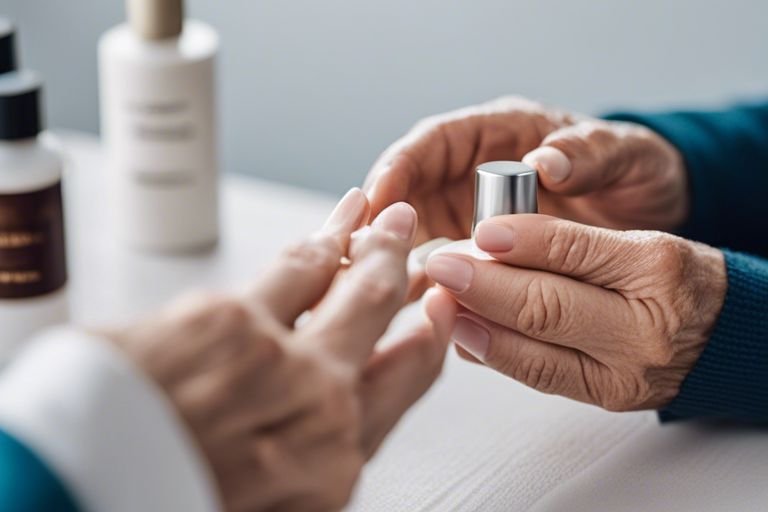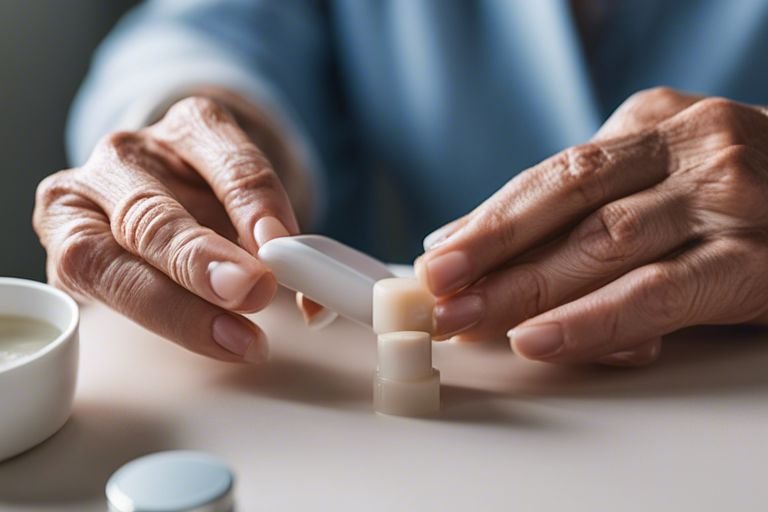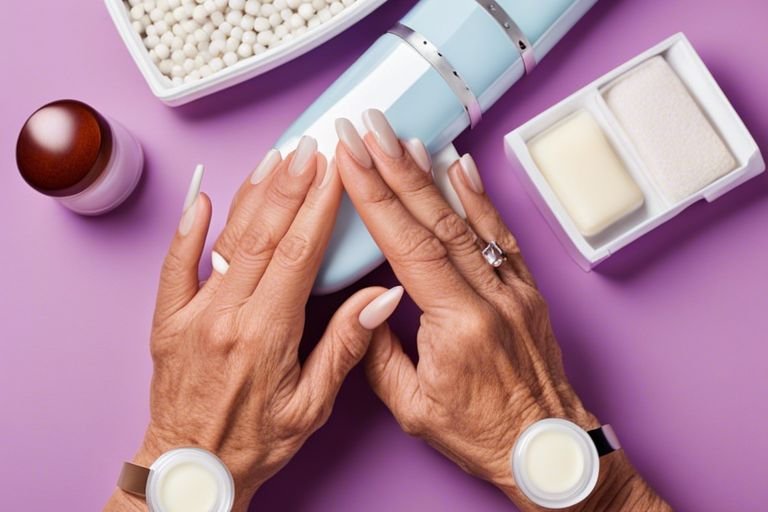As we age, nail care for seniors becomes increasingly important, yet often overlooked. Age-related changes such as thinning nails, slower growth, and increased risk of infections can pose serious health risks if not properly addressed. In this blog post, we will explore common age-related nail concerns that seniors may face and provide helpful tips and solutions to ensure their nails remain healthy and strong. By understanding these issues and taking proactive steps to care for their nails, seniors can maintain overall well-being and prevent potential complications that could arise.
Key Takeaways:
- Proper nail care is essential for seniors. Regularly trim and file nails to prevent ingrown nails, infections, and other issues.
- Moisturise nails and cuticles to prevent dryness and cracking. Use a gentle moisturiser regularly to keep nails healthy.
- Seek professional help when needed. If seniors have difficulty with nail care, it is important to seek assistance from a healthcare professional or a nail technician.

Understanding Age-Related Changes in Nails
As we age, our nails undergo various changes due to natural biological processes. It is essential for seniors to understand these age-related changes in order to effectively address any concerns and maintain optimal nail health.
Common Nail Problems in Seniors
Seniors often experience common nail problems such as brittleness, thinning, discolouration, and slow growth. These issues can be attributed to a decrease in blood circulation to the nail bed, resulting in weakened and more fragile nails. Additionally, conditions like fungal infections and ingrown nails become more prevalent with age, requiring proper treatment and care.
The Effect of Nutrition and Hydration on Nail Health
Nutrition and hydration play a crucial role in maintaining healthy nails for seniors. A balanced diet rich in essential nutrients such as biotin, vitamins A and C, and iron can promote nail strength and growth. Furthermore, adequate hydration is essential for preventing dry, brittle nails and promoting overall nail health.
It is important for seniors to consult with healthcare professionals to ensure they are getting adequate nutrition and hydration to support their nail health. Additionally, supplements may be recommended to address any deficiencies that could be impacting the condition of their nails.

Essential Nail Care Techniques for Seniors
As we age, nail care becomes increasingly important to maintain overall health and wellbeing. Proper nail care can also help in early detection of potential health issues. To learn more about the importance of nail health in seniors, you can read The 7 Vital Signs Fingernails Convey in Seniors.
Safe Trimming and Filing Practices
When it comes to trimming and filing nails for seniors, it is crucial to exercise caution to prevent injuries. Always use sharp, clean clippers to avoid nail splitting or infections. Trim the nails straight across to prevent ingrown nails, and use a gentle nail file to smooth out any rough edges.
Seniors with diabetes or circulation issues should be extra careful when trimming their nails. If unsure, it’s best to seek the assistance of a professional such as a podiatrist to avoid any complications.
Moisturizing and Protecting the Nails and Cuticles
Moisturising the nails and cuticles is essential for seniors to maintain nail health. Regularly apply a nourishing nail cream or cuticle oil to keep the nails hydrated and prevent cracking. This can also help in maintaining the flexibility of the nails, reducing the risk of breakage.
Additionally, it’s important to wear gloves while doing household chores or gardening to protect the nails and cuticles from harsh chemicals and excessive moisture. By incorporating these moisturising and protective practices into your nail care routine, you can promote strong and healthy nails as you age.

Professional Nail Care and Medical Treatments
When it comes to nail care for seniors, seeking professional help from podiatrists and dermatologists is crucial. These specialised healthcare providers can offer tailored solutions to address common age-related nail concerns and provide medical treatments when necessary.
When to See a Podiatrist or Dermatologist
If you notice any signs of infection, such as redness, swelling, or discharge around the nails, it is essential to seek immediate attention from a podiatrist or dermatologist. Furthermore, seniors with underlying health conditions such as diabetes or circulation issues should schedule regular appointments with these professionals to prevent complications.
Advantages of Professional Manicures and Pedicures for Seniors
Professional manicures and pedicures offer more than just aesthetic benefits for seniors. Regular visits to a skilled nail technician can help maintain the overall health of the nails and skin on the hands and feet. They can also detect early signs of nail problems and provide appropriate care to prevent them from worsening.
Moreover, the relaxing experience of a professional manicure or pedicure can improve seniors’ mental well-being and self-esteem, promoting a sense of pampering and self-care in their routine.
Tips for Maintaining Nail Health at Home
As we age, it’s important to pay special attention to our nail health. Proper care and maintenance can help prevent common age-related nail issues. Here are some tips to help seniors keep their nails healthy at home.
Using the Right Tools and Products
When it comes to nail care, using the right tools and products is essential. Invest in good quality nail clippers and a gentle nail file to keep your nails trimmed and shaped. Avoid using harsh chemicals and opt for nail moisturisers that contain hydrating ingredients like vitamin E or jojoba oil to keep your nails healthy and strong.
Home Remedies and Preventive Measures
For seniors looking to naturally care for their nails at home, there are several effective home remedies and preventive measures they can try. Soaking nails in a mixture of warm water and apple cider vinegar can help strengthen nails and prevent infections. Applying almond oil or coconut oil to the nails can also help keep them hydrated and nourished.
Regularly trimming and filing nails, avoiding using nails as tools, and wearing protective gloves when doing household chores can all contribute to maintaining healthy nails as we age. Recall, healthy nails are not just about aesthetics, but also indicate overall health and well-being.
Conclusion: Nail Care for Seniors – Addressing Common Age-Related Concerns
In summation, addressing common age-related nail care concerns in seniors is crucial for their overall health and well-being. By taking simple measures such as regular trimming, moisturising, and paying attention to any changes or abnormalities, seniors can maintain healthy nails and prevent potential infections or injuries. It is essential for seniors to seek professional help if they have difficulty with nail care or notice any signs of infection. Educating seniors and caregivers on the importance of proper nail care can significantly improve the quality of life for older individuals. By addressing these concerns effectively, we can promote healthy ageing and ensure seniors can enjoy life to the fullest.
FAQ
Q: Why is nail care important for seniors?
A: Proper nail care is essential for seniors to prevent infections, discomfort, and maintain overall hygiene.
Q: How often should seniors trim their nails?
A: Seniors should trim their nails regularly, around every 2-3 weeks, to prevent overgrowth and ingrown nails.
Q: What are common age-related nail concerns for seniors?
A: Common age-related nail concerns for seniors include brittle nails, thickened nails, fungal infections, and slow nail growth.
Q: How can seniors maintain healthy nails?
A: Seniors can maintain healthy nails by keeping them clean and dry, trimming them straight across, moisturising the nails and cuticles, and wearing proper-fitting shoes.
Q: What should seniors do if they notice any abnormal changes in their nails?
A: Seniors should consult a healthcare professional if they notice any abnormal changes in their nails such as discolouration, thickening, or pain, as it could indicate an underlying health issue.
Q: How can seniors improve blood circulation in their nail beds?
A: Seniors can improve blood circulation in their nail beds by gently massaging the nails and surrounding areas, staying active, and keeping hands and feet warm.
Q: Are there any nail care products specifically designed for seniors?
A: Yes, there are nail care products such as emery boards with larger grips, easy-grip nail clippers, and moisturising creams specifically designed for seniors to help them care for their nails more comfortably.
